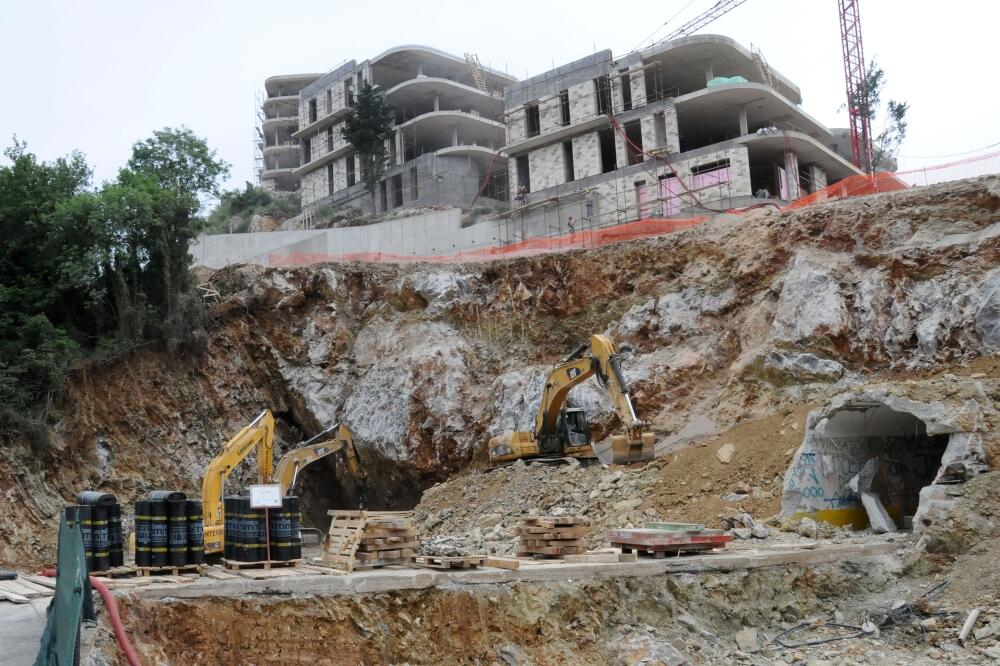The Law on Spatial Planning and Building Construction, which entered into force in August 2008, is in the process of being amended. Deadlines have been set for all phases of this work, and the deadline for consideration, perhaps adoption at the Assembly, is until July of that year.
Depending on the point of view, the evaluations of the outcome of this work range from: excellent to unsatisfactory. It is excellent in terms of meeting the deadlines set by the new Government. Unsatisfactorily, it is already obvious, it will relate to the quality of legal solutions. And, of course, the consequences.
First, the current Law forcibly united two areas: a) planning and spatial arrangement and b) construction. Both legs in one trouser. By inertia, and with the proposed changes and additions, it remains the same.
Through all previous and ongoing practice, it is confirmed that it is better to regulate spatial planning and construction through two laws. Everyone who has enough theoretical knowledge and practical work in the fields of spatial and urban planning, architectural design, as well as in construction, confirms that it is necessary to treat the matter of spatial and urban planning with one law, and design and construction with another law.
The first area covers development concepts and regulation, and the second area covers materialization. Planning and regulation of space, in addition to the unification of complex systems, also includes certain planning horizons. Design and construction are, as a rule, more narrowly, sometimes quite narrowly, directed with the demand for efficiency, that is, shorter deadlines.
There are other reasons as well. Within those two areas, new related laws also appear, because it should be borne in mind that the areas are still developing. For now, these are the Law on Energy Efficiency and the preparation of a special law on informal settlements. The need to define the concepts of sustainable development by law, instead of the mantra about sustainable development, is becoming more and more obvious. This is how we define ourselves as a community. Although the topics of urban ecology are only beginning to emerge in our country, it is a huge area. Many of the topics in this area are not even touched upon by the Law on the Environment.
At the University of Montenegro, for undergraduate studies, this subject exists only in two technical faculties (Civil Engineering and Technology - Metallurgy, with only one study program each). The issue of energy autonomy of settlements and spatial, organizational and construction solutions refers to a possible special law.
Second, the Law that is being changed now promoted an unprecedented miracle - the so-called spatial urban plan, abbreviated PUP. During the drafting and professional and public discussion in 2007 and 2008, the majority of those who knew the theory of spatial and urban planning and the actual practice in those areas in Montenegro were against this legal solution. The opinion of consultants outside of Montenegro and the imitation of other people's experiences prevailed.
That's how local people from that profession were "shredded" and, of course, damage was done. This is confirmed by the fact that not a single PUP has been adopted so far, and that through the drafting of several that are in progress, problems are constantly encountered that are generated by this "half fish - half girl" legal solution. Which was done without proper professional verification. It is absurd that the intention of the legislator is to retain the same solution in the amended law (the last version of the Draft dated March 31, XNUMX).
But that's not all. For example, almost twenty years ago (March 13, 1992) the European Declaration on the Rights of Citizens in Cities was adopted, ten years before that the European Urban Charter.
Of course, there are more useful guidelines if we are serious about preparing for the EU. Strategies follow from these and other charters and declarations, and planning solutions from these. Improving your planning practice and aligning with trends in the EU area should be reflected in legal solutions. This cannot be seen in the proposed draft. It seems that they are looking for a legal solution that would justify two slogans: the removal of obstacles to business (a foreigner's favorite is business barriers) and everything through one counter. And the law that is being amended was made in the name of removing obstacles to business. The construction of the Zavala complex was completed without any obstacles, even before the creation of a detailed urban plan, and thus without a building permit. The law was no obstacle.
Also a weekend village next to the Savin Kuk ski resort. For dozens of houses on the coast of Bojana, an area covered by the Morsko dobro plan, a decision will be made on temporary facilities. Tourism, although a strategic economic branch, is still only one of the contents of the area. Spatial planning and regulatory solutions of tourist settlements, complexes and facilities cannot be considered separately from other spatial and urban functions in the planning process. This also applies to all other economic branches.
The intention to give full priority to tourism is obvious. This carries a huge danger of further disintegration of space. If common sense is not enough, this can be proven by appropriate urban and urban analysis. Also assessments of the threat of space. This law will not contribute to the removal of obstacles to a quality life and the realization of those rights from the European Declaration on the Rights of Citizens in Cities.
Deeper urban, urbanological and urbo-sociological research is invaluable before passing another law on space and law on construction. Who else would do research? The deadlines for changes and additions have been determined, and they are sufficient to achieve the highlighted goals: a) there are no obstacles to profit b) the damage goes to the citizens.
Bonus video:





